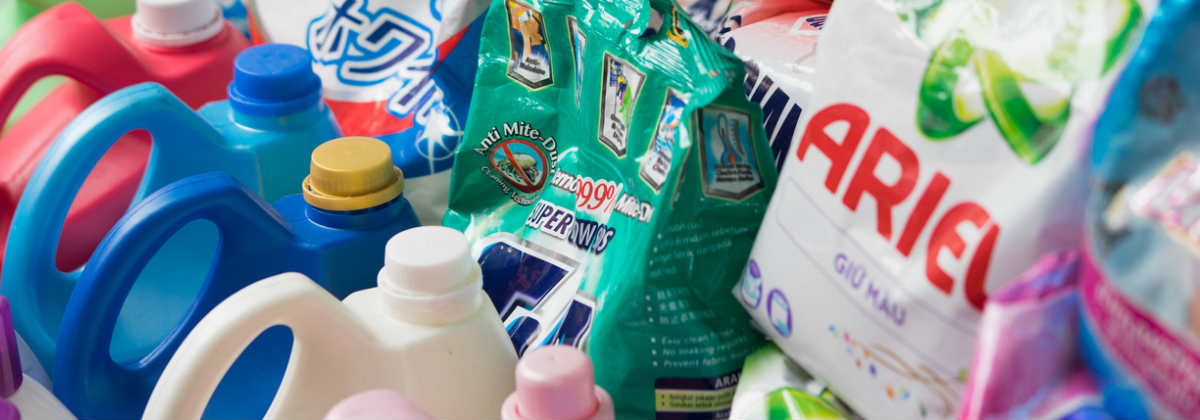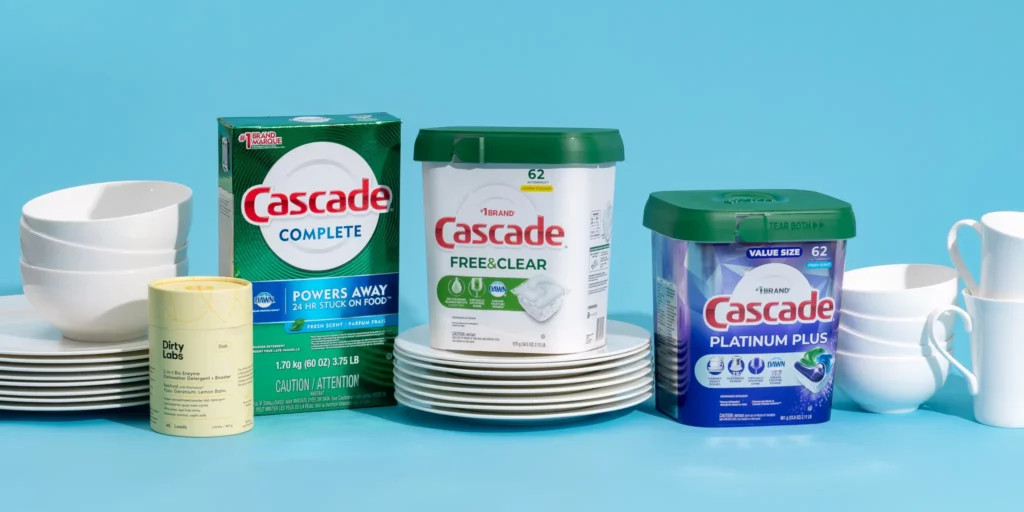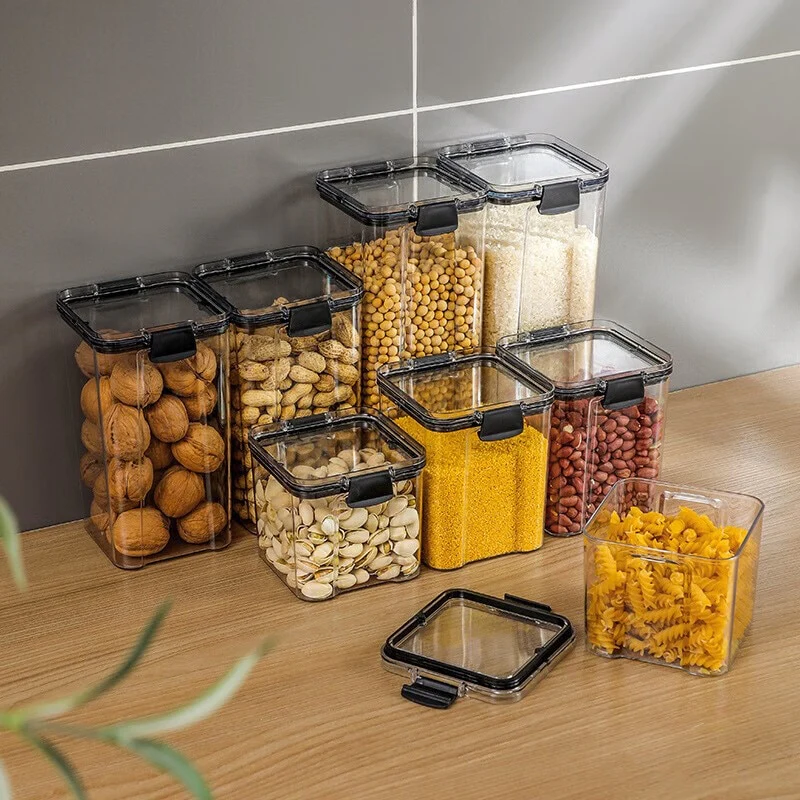
How To Select Takeaway Boxes For Hot, Cold, And Mixed-Temperature Foods
Selecting the right takeaway boxes is often a challenge for businesses handling diverse menu items, from steaming soups to chilled...

Get 20€ off on your first order!
Cleanliness and hygiene are essential in food processing, and choosing the right dishwasher detergent is key to achieving both. This guide provides clear, practical steps to help you select detergents that meet your facility’s needs, ensure compliance with industry standards, and deliver exceptional cleaning results.
With expert insights and solutions tailored to food processing challenges, you’ll gain the confidence to make the best choice. Plus, we’ll guide you through complementary cleaning strategies to create a spotless and efficient operation. Let’s get started!
To learn about the broader context of dishwasher detergents, check out our Dishwasher Detergents: Selecting The Right Cleaning Products for an overview of available options and their applications.
Not all dishwasher detergents are compatible with the industrial dishwashers commonly used in food processing. Brands like Miele Professional and Hobart often recommend specific detergent formulations to maintain optimal performance. Detergents should:
When choosing detergents, consult your dishwasher manufacturer’s guidelines and prioritize products specifically formulated for commercial use.
Food processing residues, such as proteins and oils, benefit from detergents with specialized cleaning agents designed to ensure thorough and efficient cleaning. Look for detergents containing:
Food safety regulations in Europe, such as EU Regulation (EC) No 852/2004 on Food Hygiene, demand thorough cleaning and sanitization. These regulations emphasize residue-free cleaning to prevent cross-contamination and ensure consumer safety. Your detergent should:

Understanding the types of detergents available will help you choose the right product for your facility. Below is a comparison chart summarizing key features of each detergent type for quick reference.
While cost is a critical consideration, prioritizing performance is essential in food processing environments. High-quality detergents can help reduce cleaning cycles, optimize energy use, and minimize water consumption for more sustainable operations. Opt for products that strike the right balance between cost-efficiency and cleaning efficacy.
To explore a wide range of dishwasher detergents that combine quality and affordability, visit our product category page.
With increasing emphasis on sustainability, many food processing facilities seek eco-friendly cleaning solutions. Certifications such as the EU Ecolabel can help identify detergents that meet stringent environmental standards. When choosing detergents, consider:
In food processing, maintaining a clean environment goes beyond dishwashing. Surface Cleaners, for instance, are critical for ensuring sanitized workspaces. Explore our range of surface cleaners to complement your cleaning routine.
Specialized detergents are tailored to enhance commercial dishwasher performance and ensure optimal cleaning efficiency. Always select detergents specifically designed for commercial use.
Using water softeners or specially formulated detergents enhances cleaning performance, even in areas with hard water. If your facility uses hard water, consider detergents with built-in water softeners or use separate water conditioning products.
Pairing high-quality detergents with regular dishwasher maintenance supports long-lasting equipment performance and optimal cleaning outcomes. Regularly clean and descale your machines to maintain optimal performance.
We hope this guide has been helpful in navigating the essential factors for choosing the best dishwasher detergents for food processing, from cleaning power to compliance with hygiene standards. Whether you’re managing a large-scale operation or tackling specialized cleaning tasks, we’re here to support your needs.
Explore our full range of Dishwasher Detergents from trusted brands that combine quality and performance.
Have questions or need personalized advice? Don’t hesitate to reach out—our team is always ready to assist you in finding the perfect solutions for your cleaning challenges.
While some detergents are versatile, it’s best to choose one specifically formulated for your equipment and cleaning needs. Always check compatibility with your dishwasher and residue requirements.
Look for certifications such as EU Regulation (EC) No 852/2004 compliance or labels indicating food-safe, antibacterial properties.
Yes, many eco-friendly detergents combine sustainability with powerful cleaning capabilities. Ensure they meet hygiene standards and are suitable for your specific residues.
Store detergents in a cool, dry place, away from direct sunlight or moisture, and follow the manufacturer’s storage instructions to maintain effectiveness.
This depends on water hardness and usage, but regular descaling—monthly or as recommended by the manufacturer—ensures optimal performance and extends equipment lifespan.
Thank you! You've signed up for our newsletter.



















Selecting the right takeaway boxes is often a challenge for businesses handling diverse menu items, from steaming soups to chilled...

Selecting the right disposable knives is key to efficient operations and customer satisfaction. This guide offers clear, practical advice to...

Are you looking for the best food storage solutions for your kitchen or food service operation? In this article, we’ll...

Selecting the right takeaway boxes is often a challenge for businesses handling diverse menu items, from steaming soups to chilled...

Selecting the right disposable knives is key to efficient operations and customer satisfaction. This guide offers clear, practical advice to...

Are you looking for the best food storage solutions for your kitchen or food service operation? In this article, we’ll...
Get 10€ off on your first order!
Save 30% by buying directly from brands, and get an extra 10€ off orders over €100
Save 30% by buying directly form brands, and get an extra 10€ off orders over €100